Veni, Vidi, Vici: We Came, We Saw, We Concord.
Bill Dennison ·The title of this blog, adapted from Julius Caesar’s quote “I came, I saw, I conquered,” is based on a trip that Brianne Walsh and I made to Concord, Massachusetts from from February 26th – March 3rd. Brianne and I traveled to Concord to initiate a report card for the Assabet, Sudbury and Concord Rivers. We are working with OARS, an organization that is focused on these 3 rivers, based in Concord. The OARS staff, Alison Field-Juma, Julia Khorana and Sue Flint, were wonderful hosts and we had a productive and enjoyable visit.
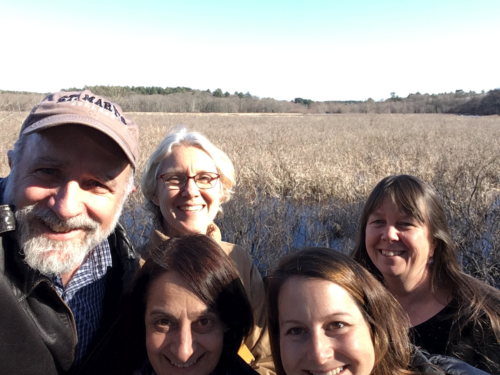
We held two days of workshops at a beautiful venue in Great Meadows National Wildlife Refuge overlooking the Sudbury River. One day was with a fairly large group of stakeholders and the other day was with a smaller, more technical group to prioritize data needs. The remainder of the week was spent with the OARS staff to conduct report card training sessions, and kickoff their report card process. The OARS office was in a nicely renovated mill building along the Assabet River in West Concord.

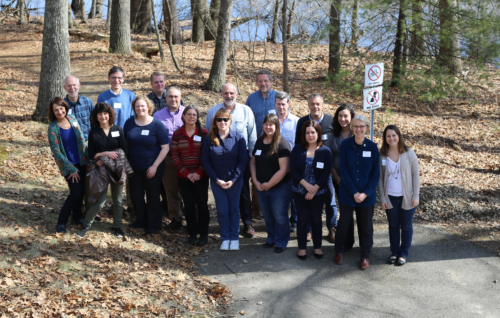
The stakeholder workshop included a broad diversity of people and I was impressed with the collective direct river experience of the participants. They expressed their passion for the rivers and many of them had often canoed or kayaked the rivers. We had a nice geographical representation, covering the watersheds of all three rivers.
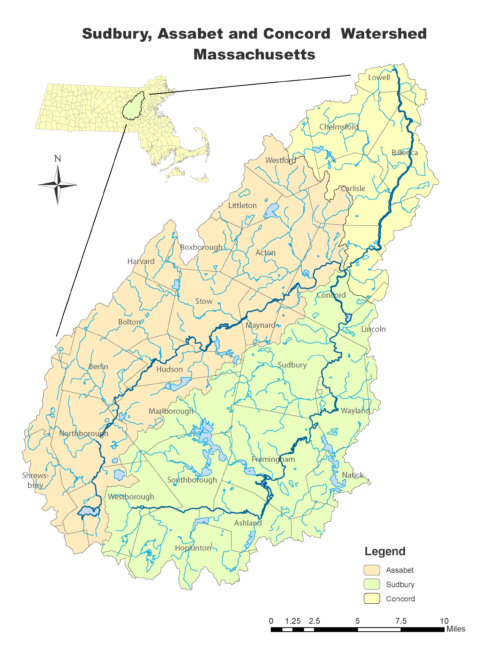
There are multiple organizations and agencies with an interest in the Assabet, Sudbury and Concord Rivers and many of these organizations were represented at the workshop. In addition, there were representatives from neighboring watersheds, including the Nashua, Mystic and Charles River watersheds.
We conducted several activities to begin conceptualizing and characterizing the rivers. We developed a word cloud for each river, based on the impressions the participants had of each river. We also conducted a conceptual mapping exercise in which breakout groups discussed the key features and major threats for each of the rivers. We played ‘SNAP’ to identify and prioritize values in the watershed. We also developed a stakeholder matrix in which we identified different organizations who have either interest, or influence, or both and discussed strategies for creating interest, empowering people and fostering champions.
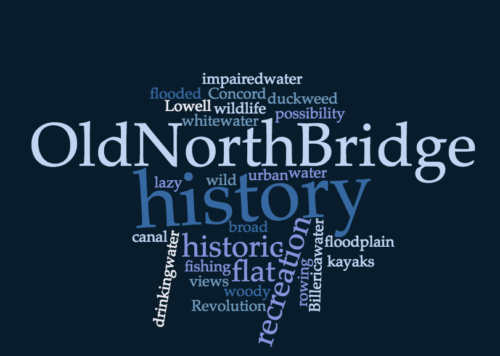
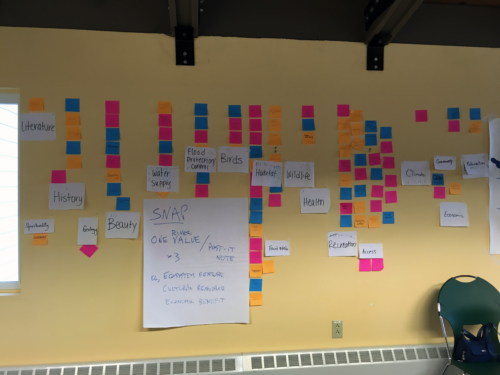
In the afternoon, we played a couple of rounds of ‘Get the Grade,’ the report card game that we co-developed with WWF, our partners in the Healthy Rivers for All initiative. We had fun comparing the scores of the different groups and some of the role-playing was amazing. Our final session was focused on creating the overall goals to capture in the report card and to identify some potential indicators.
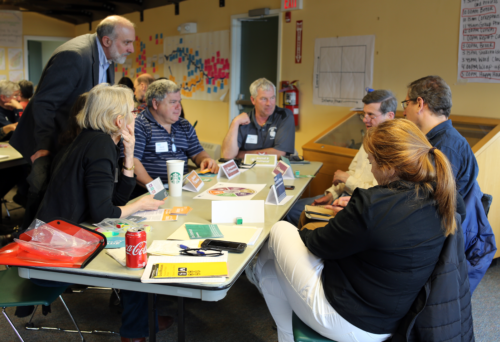
To wrap up the workshop, I adapted the famous poem, “The Concord Hymn” by Ralph Waldo Emerson that coined the phrase “The shot heard ‘round the world.”
The Concord Hymn
28 Feb 2018
by William ‘Waldo’ Dennison
By the Great Meadows that absorbed the flood
A plan for a report card was unfurled
The Assabet, Sudbury and Concord Rivers all stood
To gain from grades heard round the world.
The data long since in silence slept;
Alike the river understanding sleeps;
But into the light the data will be swept
Away with darkness which seaward creeps.
On this green bank, by his soft steam,
We set today a report card in motion;
That our memory may one day redeem
When we recall this day with strong emotion.
Spirit, that made these heroes dare,
To create something new and free
Bid time and nature gently spare
The report card we raise to them and thee.
Following the stakeholder workshop, we had a nice reception at the Battle Road Brewing Company in Maynard, MA, next to a mill pond alongside the Assabet River.
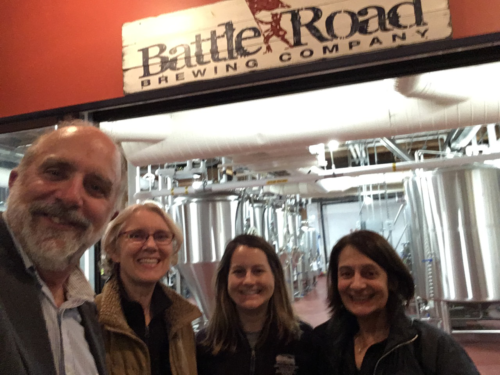
We held a smaller data integration workshop on the following day with some new participants joining those who attended the stakeholder workshop. In this workshop, we established the reporting regions for the report card and began articulating goals for our future indicators, such as water quality, water quantity, recreation, habitat and wildlife, economy. With these goals in mind, we had breakout groups identifying various data sources and began exploring what kind of thresholds we could use. We also had breakout groups make an educated guess at what a final report card using data would look like for the region.
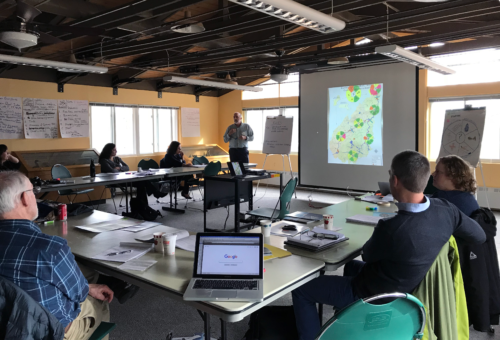
After our final training session with the OARS staff, I provided an homage to Henry David Thoreau from his iconic book “On Walden Pond” which is in the Sudbury River watershed. Thoreau wrote about the motivation for his 2 year, 2 month and 2 day stay in a cabin on Walden Pond, which I adapted for our 5 day, 3 hour and 5 minute stay in Concord:
“We went to Concord because we wished to live deliberately, to find only the essential facts of the river, and see if we could not learn what it had to teach, and not, when we head back home, discover that we had not lived.”
We are looking forward to the development of this report card and interacting with OARS in the future. We are glad that we were able to get off to such a good start.
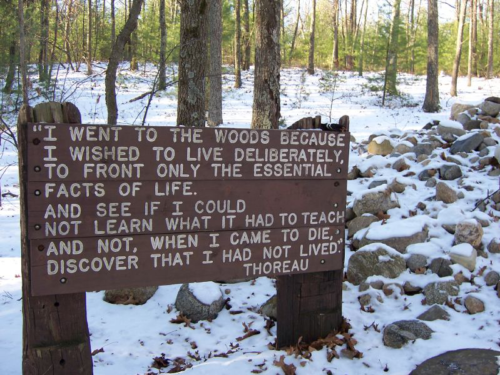
About the author
Bill Dennison

Dr. Bill Dennison is a Professor of Marine Science and Vice President for Science Application at the University of Maryland Center for Environmental Science.